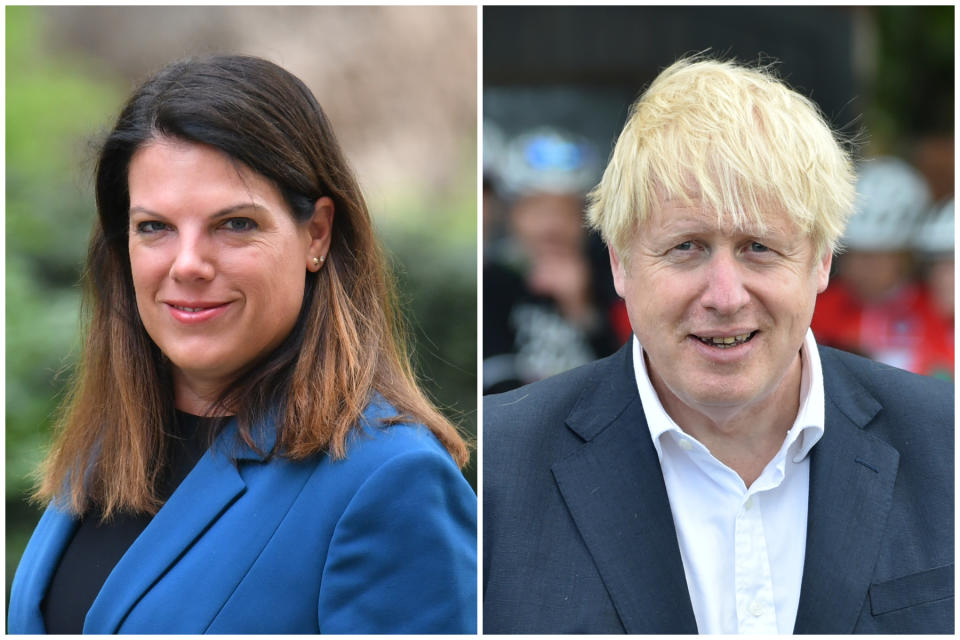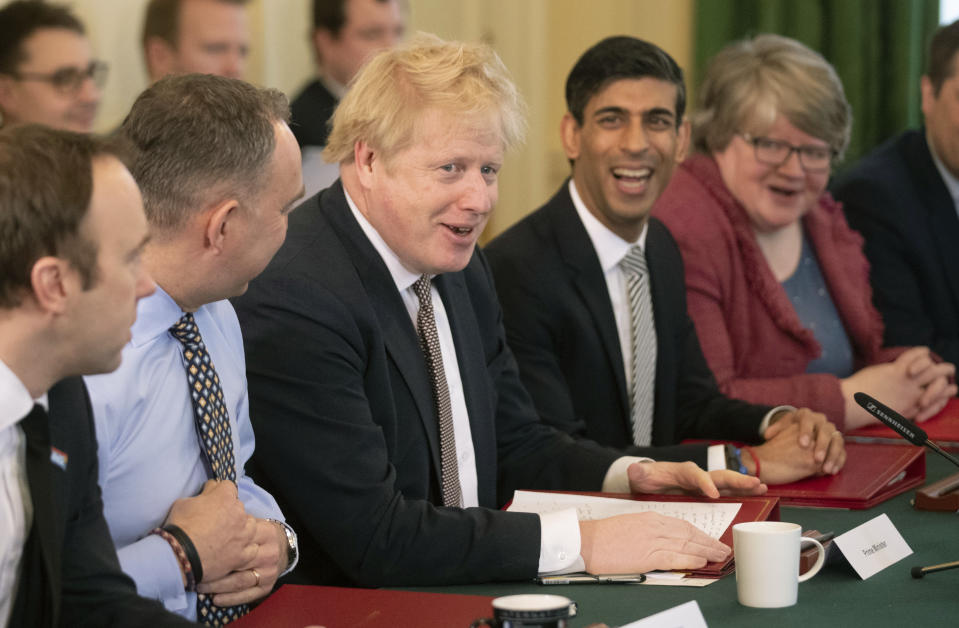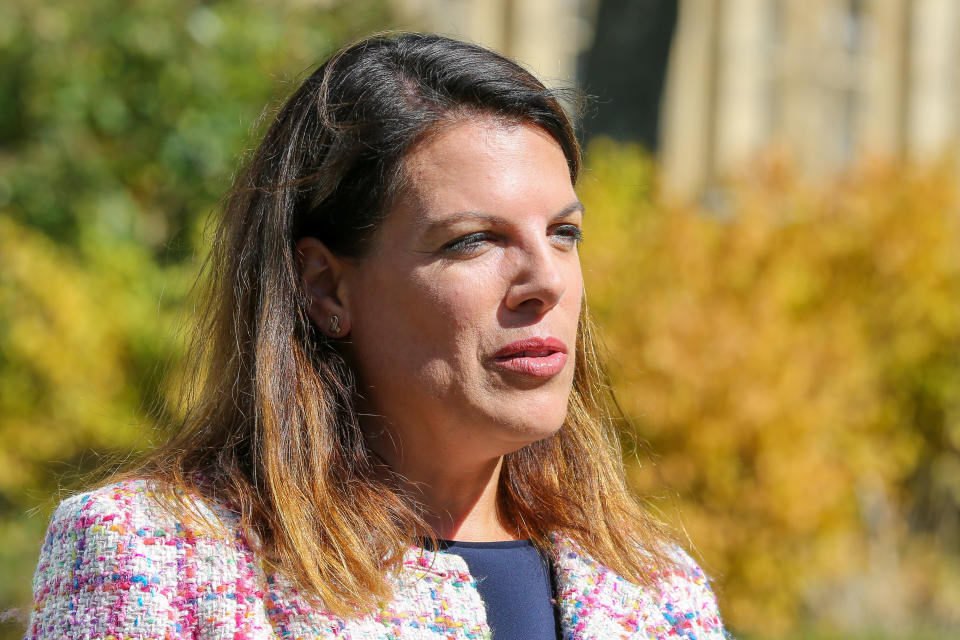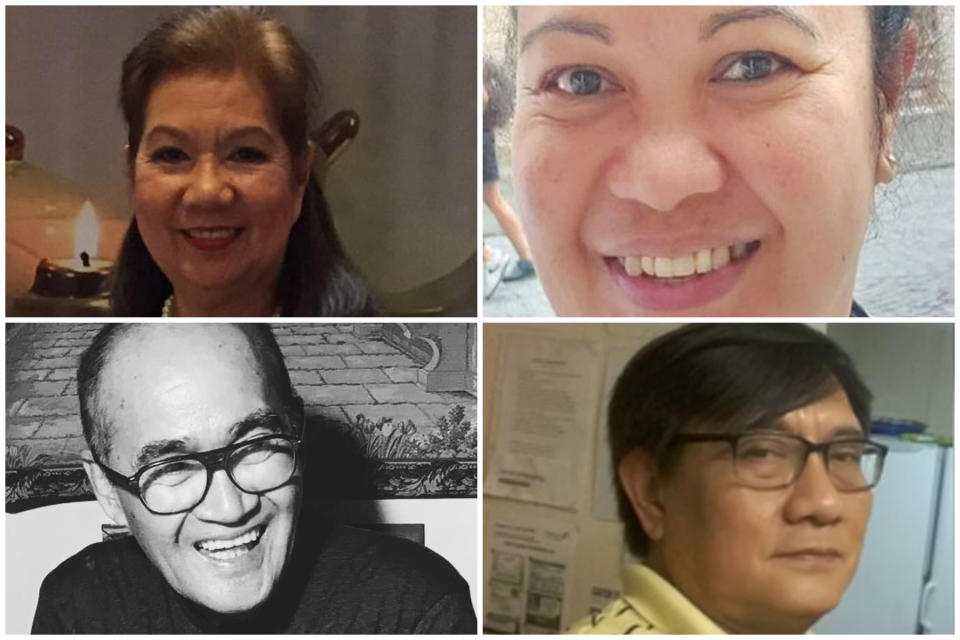'He only encountered girls at university': Tory MP attacks Boris Johnson for failing to take women's voices seriously

Female voices do not even enter Boris Johnson’s consciousness, a leading Conservative backbench MP has said.
Caroline Nokes, chair of the House of Commons women and equalities committee, said the coronavirus pandemic has shown the prime minister does not take women’s issues seriously.
“He doesn’t even think about it,” she said.
In an interview with Yahoo News UK, Nokes accuses the Johnson government of:
failing to address key issues affecting women during the pandemic
designing its coronavirus recovery plan for men
being guilty of “institutional thoughtlessness” towards women
In May, Nokes quizzed Johnson about the lack of female voices in the government's response to the COVID-19 pandemic. The PM laughed at the question.
Watch the clip below
Not that Nokes was particularly surprised by the reaction.
“I think [his laughing was] a nervous reaction,” she says. “I think that’s what he does when he feels uncomfortable. When he knows he’s on the ropes, the PM laughs. It’s a way to deflect it.
“I think it’s fair to say that he doesn’t take it seriously. He doesn’t even think about it. It doesn’t cross his consciousness.
“This is one of the huge challenges when men go to school with other men. He’s had an all-male education, didn’t encounter girls until he went to university.
“This is a common problem that you find in Parliament. Because it’s so wildly outside their experience, they don’t stop and think about it.
“I think the PM laughs when he knows damn well he’s on the ropes and he’s trying to deflect attention from the fact he doesn’t have a decent answer.”
Nokes then points to chancellor Rishi Sunak’s “big omission” of childcare in this month’s “plan for jobs”, the government’s economic recovery strategy.
Prof Abi Adams-Prassl, an economist from the University of Oxford who has been researching inequality relating to the pandemic, has identified disrupted childcare as a key factor as to why it is affecting women more than men.
She said furloughed women with children questioned in her survey were “significantly more apprehensive” about going back to work.
Nokes says: “If you cannot access childcare, then it is incredibly hard for all parents to go back to work. There will be difficult choices made in families about who is the higher earner, and whether it will be the mother or father who goes back to work and who picks up the childcare responsibilities.
Read more: Three ways the coronavirus pandemic is affecting women more than men
“You needed people around the cabinet table who would have the instinct to think: ‘Hang on, how can women go back to work when their kids are not in school yet?’
“Secondary schools don’t go back until September. You cannot leave an 11/12/13-year-old in the house alone all day while you go back to work.
“That’s self-evident to anyone who has ever tried it and seen the chaos that ensues. You might do it one day, but you sure as hell don’t do it for weeks and weeks.”
Nokes also says she expected Sunak to announce measures helping female employment, following job losses in female-dominated sectors such as retail and hospitality.

Instead, a key part of the statement was £5.8bn for “shovel-ready” construction projects. Construction is an industry where 85% of jobs are held by men.
“I don’t think this is intentional sexism,” she says. “I don’t think it is a deliberate attempt to marginalise women.
“I think it’s just institutional thoughtlessness and a lack of regard for the need for a variety of voices feeding into the discussion.
“The recovery was designed by men for men. If you look at the quad who were in charge when Boris was in hospital: all men. If you look at the senior positions around the cabinet table with the exception of the home secretary: all men.”
Just six of the 26-member cabinet are women.

Even then, Nokes – a former government colleague of Johnson who was sacked as immigration minister when he became PM in July last year – says those six women have been marginalised during the pandemic.
“I would use, as an example, the work and pensions secretary [Thérèse Coffey]. She’s a woman. We know Universal Credit has seen its biggest ever increase in applicants. We have seen unemployment rising dramatically.
“Yet in those daily press conferences we heard from [Coffey] not once.”
Meanwhile, of those 92 daily press conferences, just three were led by a woman: home secretary Priti Patel.
Nokes goes on: “If you don’t have women in the room, then the views of women won’t be included. That is a really stark reality.”

The Nokes-led women and equalities committee is currently carrying out three probes into the “unequal impact” of the pandemic, based on ethnicity, disability and gender.
The Romsey and Southampton North MP admits she was “shocked” at the impact of COVID-19 on black, Asian and minority ethnic (BAME) communities, “which became really apparent from the moment you saw photographs of the healthcare workers who died”.
An analysis by PA in mid-June found 17% of UK healthcare deaths were people of Filipino heritage. In the 2011 census, people born in the Philippines accounted for 0.2% of the population in England and Wales.

Meanwhile, a Public Health England report found that people of Bangladeshi heritage had about twice the risk of death when compared with people of white British ethnicity.
In addition, people of Chinese, Indian, Pakistani, other Asian, Caribbean and other black ethnicities had between a 10% and 50% higher risk of death when compared to white British people.
Nokes says: “There has been no single clear reason available to us so far. You can see very clearly that it is impacting BAME communities more. What we are still struggling to identify is why.
Read more: What it's like living through the UK’s ‘vicious’ coronavirus racism
“The committee is very keen that what we come up with is [asking the government] what are you going to do about this. What measures can the government put in place to safeguard BAME people from being exposed to the worst risks of COVID.”
Reports on the probes are set to be published in the autumn.

 Yahoo News
Yahoo News 
